The 10 most beautiful university libraries in the world
From bat infestations to robot librarians: the world’s 10 loveliest university libraries and all the surprises they have to offer
Share
As the American writer Shelby Foote once said: “A university is just a group of buildings gathered around a library.”
Though so much information for most people’s studies is now online, you can’t beat the feeling of sanctuary and calm you get from a good library. Whether you use them for research, reading or just to escape the world for a few hours, libraries are an essential part of the university experience.
You shouldn’t pick a university based solely on how it looks (don’t judge a book by its cover!), but it doesn’t hurt if your chosen university’s library is easy on the eye. Below are some (we know there are plenty more!) of the most beautiful university libraries in the world.
1. The Joe and Rika Mansueto Library, University of Chicago, US
Designed by Helmut Jahn and opened in 2011, the Joe and Rika Mansueto Library at the University of Chicago features a spectacular glass roof, perfect for staring out of when you need to give your eyes a rest.
The underground storage space for delicate books and records is climate controlled and features around 3.5 million volumes. If you’re not already impressed, the librarians are robotic cranes, which will locate and bring any book in the library to you in no more than three minutes.
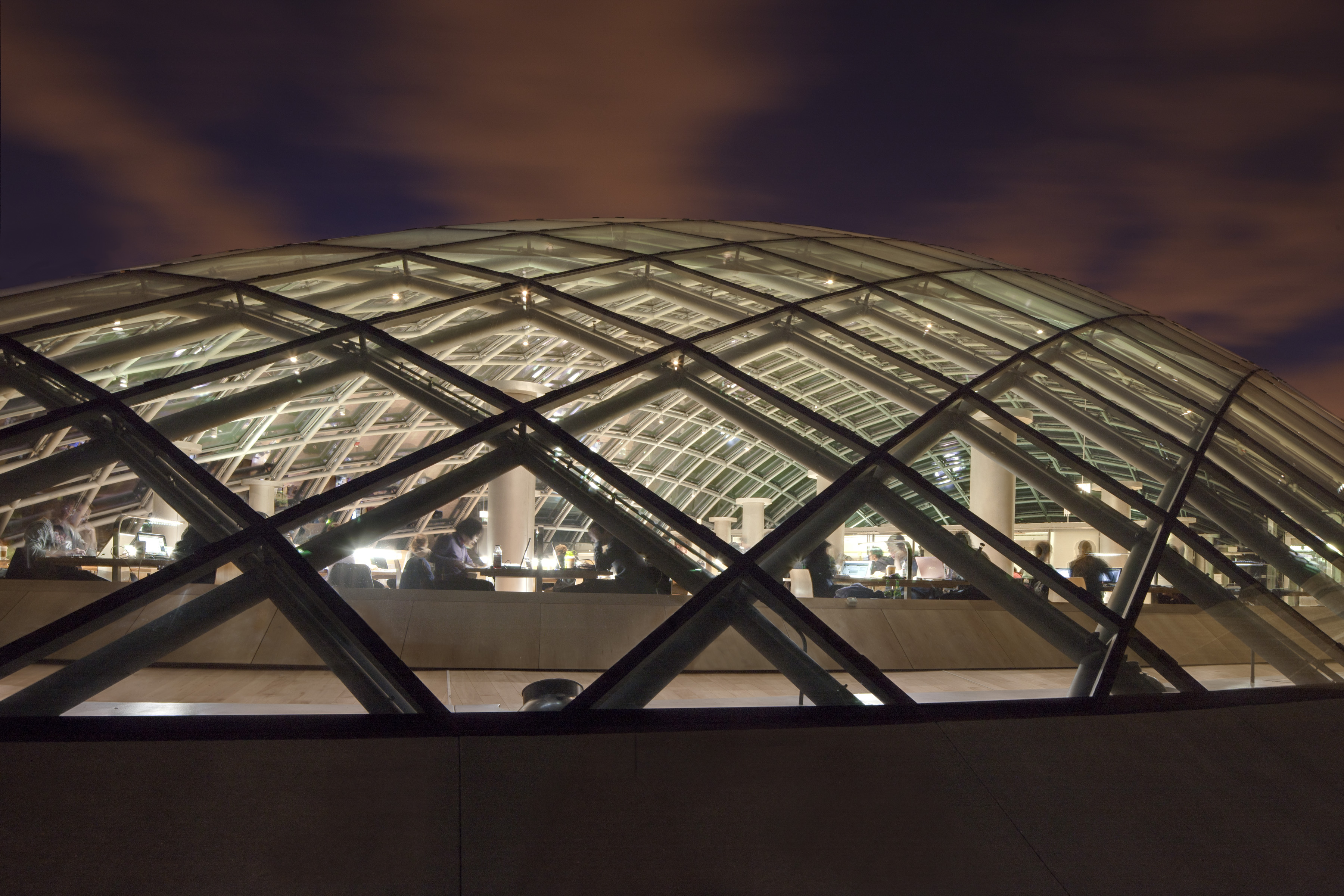
Image credit: Tom Rossiter,
2. Hachioji Library, Tama Art University, Japan
Designed by the renowned Japanese architect Toyo Ito and located in Tokyo, the Tama Art University’s Hachioji Library feels like a modern cathedral or palace. With over 60,000 square feet of floor space set over two levels and huge curved concrete ceilings, the building takes inspiration from European medieval structures and modern materials. This clash of old and new makes for an interesting aesthetic within the building.
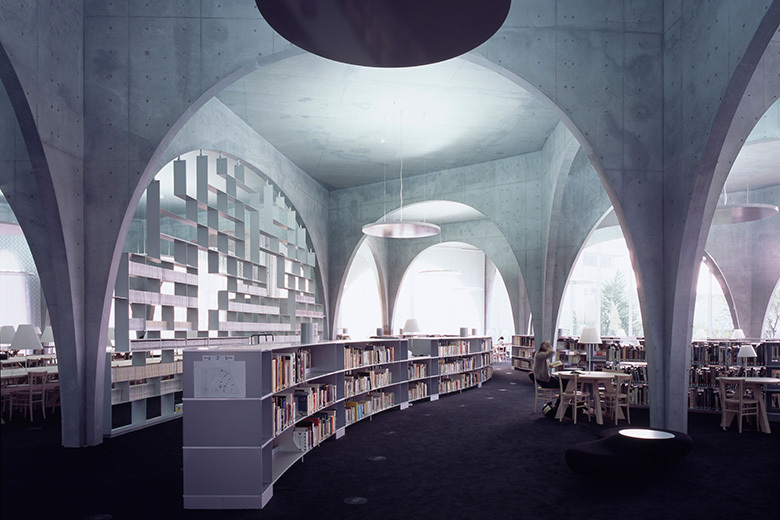
3. Old Library, Trinity College Dublin
The world-famous Long Room in the Old Library at Trinity College Dublin is perhaps the quintessential university library, full of ancient books, marble busts, wood panelling and dimly lit corners. It was built between 1712 and 1732 and houses 200,00 of the library’s oldest books.
Treasures of the library’s extensive collection include a rare copy of the 1916 proclamation of the Irish Republic and an exquisite 15th-century harp.
Image credit: Trinity College Dublin
4. Geisel Library, University of California, San Diego, US
The brutalist sci-fi masterpiece that is the Geisel Library at the University of California, San Diego was designed by the architect William Pereira.
The eight-storey library is set on top of a base tower and is 110 feet high. Famously, there is no signage or lift stop for a third floor. University of California students will tell you the rumour that the original design didn’t account for the weight of the books, meaning one floor had to remain empty. 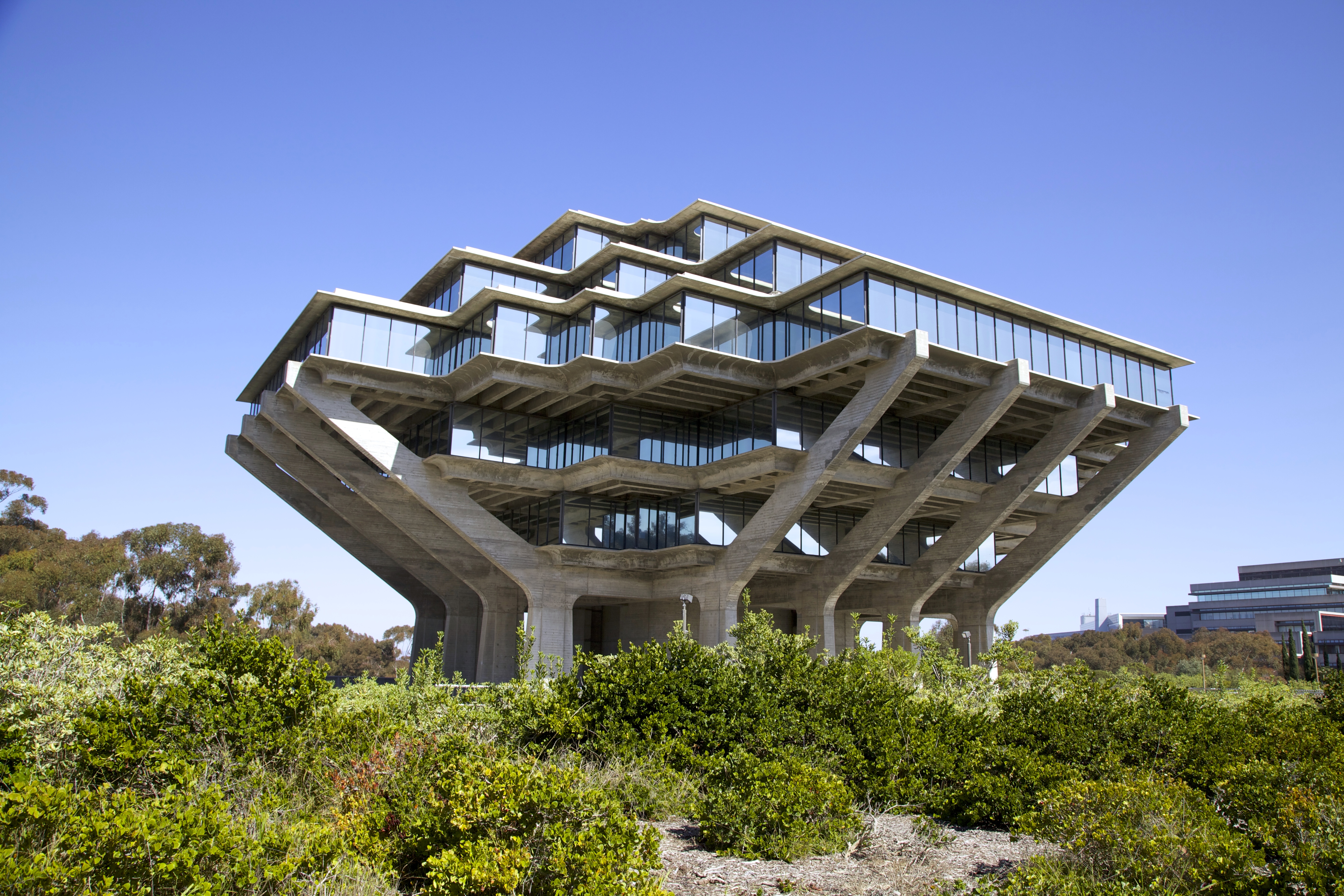
Image credit: Erik Jepsen, UC San Diego Publications
5. Les Aigues Library, Pompeu Fabra University, Spain
The unique Les Aigues Library building at Pompeu Fabra University was not designed to house books but rather to supply water as the central reservoir to the nearby Parc de la Ciutadella. The conversion induces a sense of tranquility and silence similar to a monastic space, with the original columns and brickwork on show.
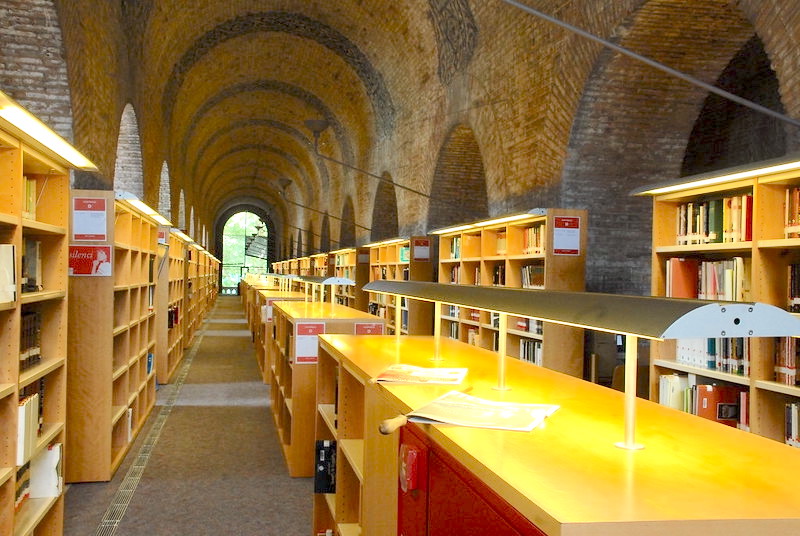
Image credit: Pompeu Fabra University
6. Library and Learning Centre, Vienna University of Economics and Business, Austria
The Library and Learning Centre at the University of Economics and Business in Vienna was designed by Zaha Hadid, a major figure in contemporary architecture before her death in 2016. The exterior features sharp, futuristic lines, while inside bright white corridors, walls and rooms flow together, showcasing exactly why critics named Hadid the “queen of curves”.
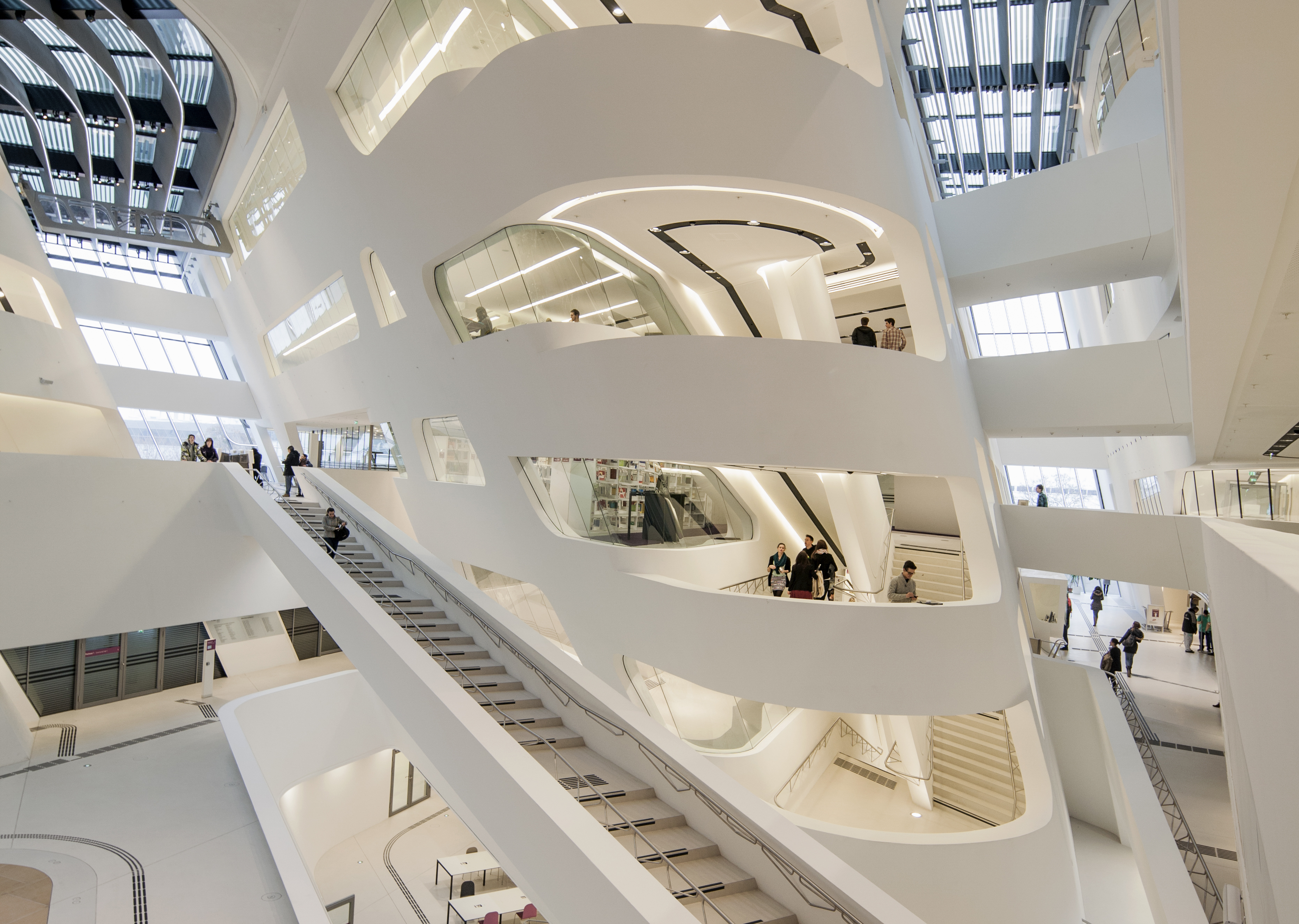
Image credit: boanet.a
7. George Peabody Library, Johns Hopkins University, US
Located on the Mount Vernon campus at Johns Hopkins University in Baltimore, the George Peabody Library was established in 1878 and is easily one of the most beautiful libraries in the world.
Johns Hopkins University members can use it as their research library for all things 19th century, but the collections are also open to the public, in keeping with the wishes of the famous merchant and philanthropist George Peabody, who financed it.
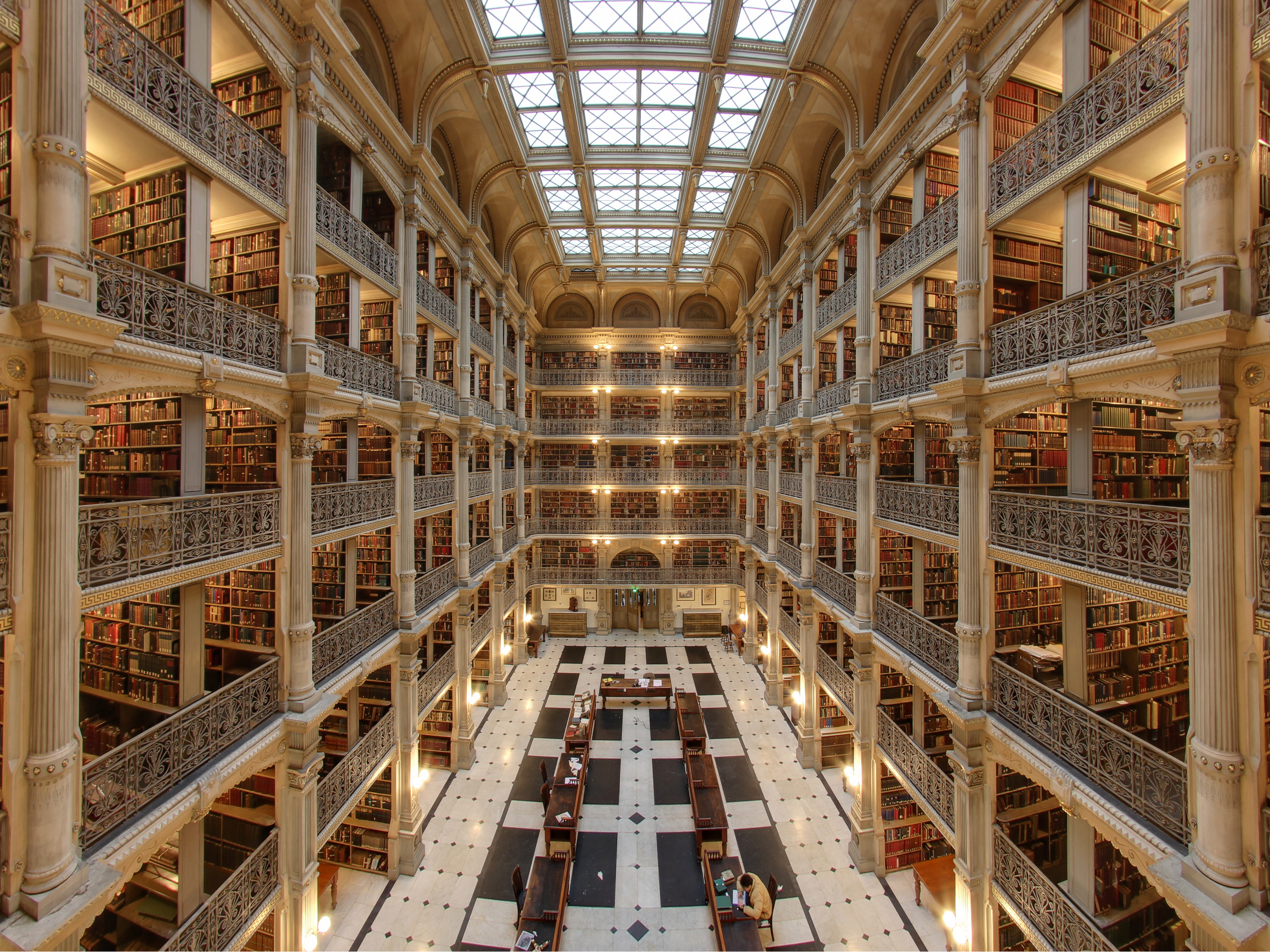
Image credit:Matthew Petroff, JHU Sheridan Libraries
8. Bodleian Library, University of Oxford, UK
The University of Oxford, one of the oldest in Europe, is known for its architecture, leading to Oxford being nicknamed “the city of dreaming spires”. Oxford’s Bodleian Library is in fact a collection of libraries and requires students to recite an oath promising not to mark the books before they are granted membership. The library and buildings have been used as locations for many films, including the Harry Potter series, The Golden Compass and X-Men: First Class.
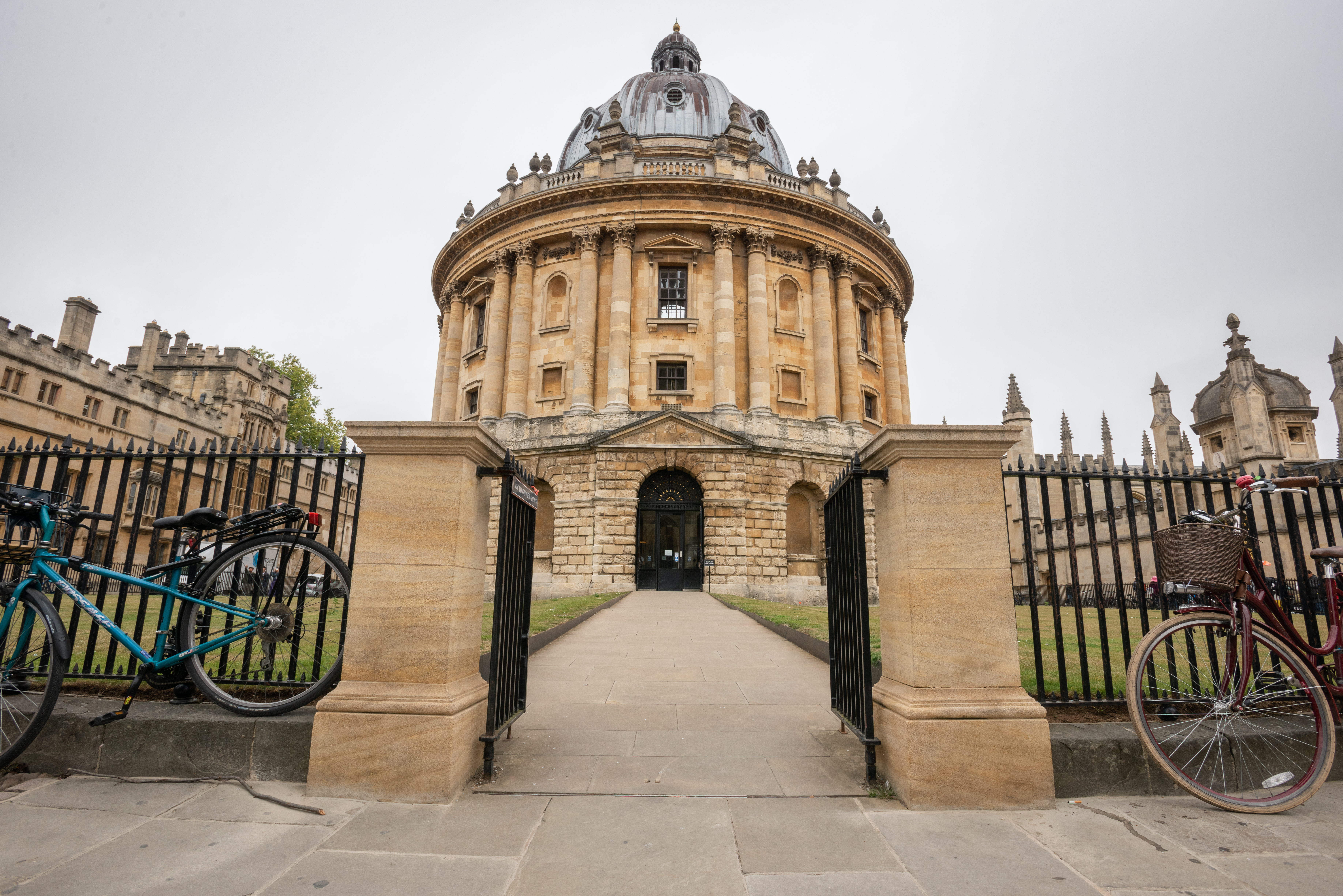 Image credit: John Cairns, Bodleian Libraries
Image credit: John Cairns, Bodleian Libraries
9. The Joanine Library, University of Coimbra, Portugal
Built in the 18th century under the orders of the Portuguese King John V, the Joanine library is a baroque masterpiece at the heart of the beautiful University of Coimbra. As well as being a functioning reference library for students, it’s also a national monument due to its historic and cultural significance.
It’s one of the only libraries in the world where bats are welcome guests. A colony of common pipistrelle bats make their home behind the bookshelves, coming out at night to eat flies, gnats and other pests and in doing so helping preserve the manuscripts from natural damage.
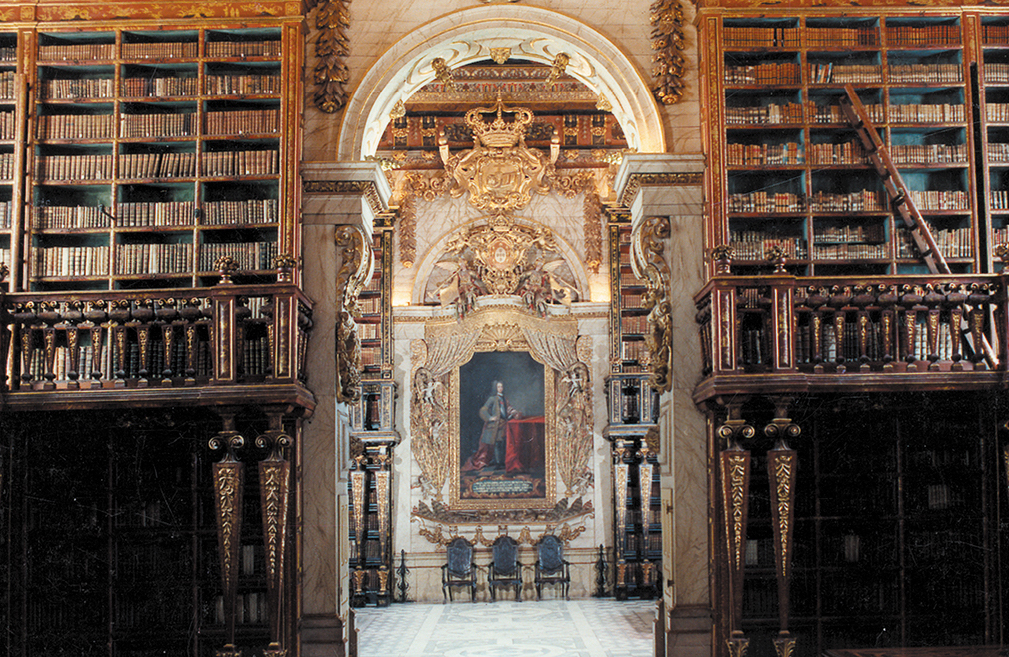
Image credit: University of Coimbra
10. Central University City Campus Library, National Autonomous University of Mexico, Mexico
The Central University City Campus Library is truly one of a kind. Towering over the surrounding campus, the building is adorned with the mural A Historical Representation of the Culture, created by the Mexican artist Juan O’Gorman. The mural features mosaics representing the three fundamental historical ages in Mexican culture: the pre-Hispanic era, the Spanish colonial era and the modern age that has been born out of these two periods. None of the stones used in the mosaic is painted; all are naturally coloured and sourced locally in Mexico. In July 2007, the library was recognised as a Unesco world heritage site.
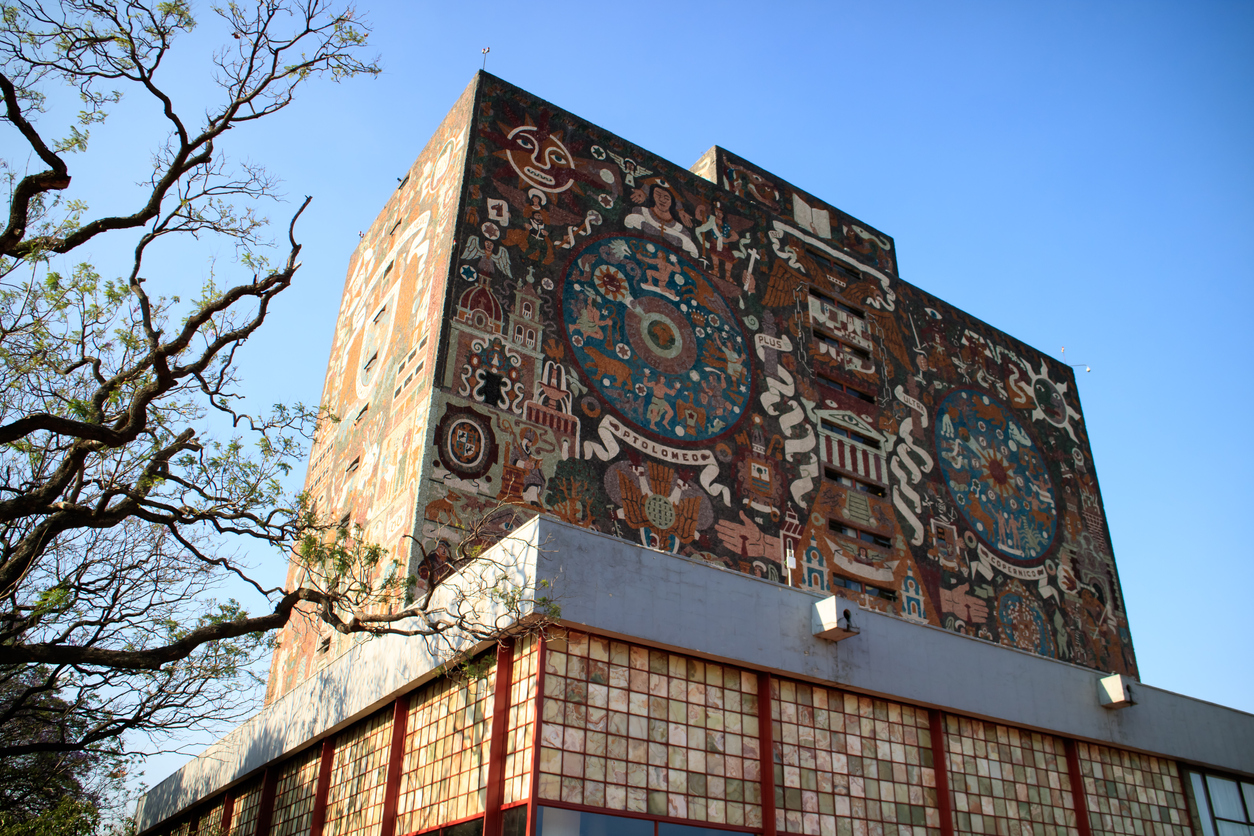
Image credit: iStock
Covering image credit: John Cairns, Bodleian Libraries
